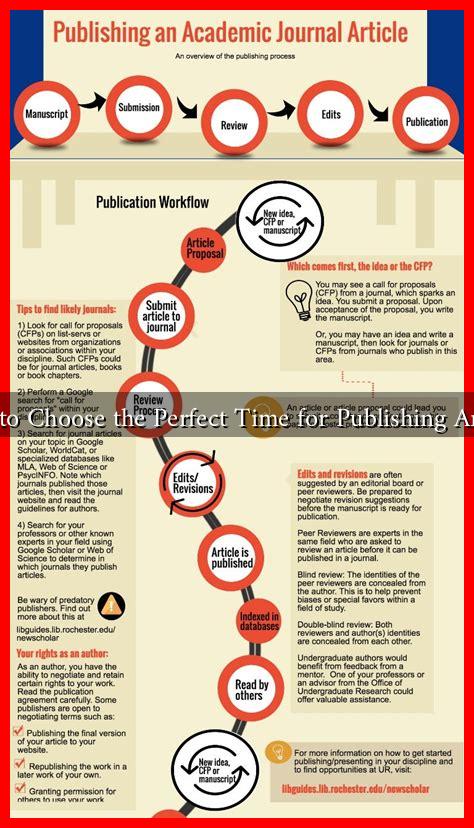-
Table of Contents
How to Choose the Perfect Time for Publishing Articles
In the digital age, the timing of your article publication can significantly impact its reach and engagement. Whether you are a blogger, a content marketer, or a journalist, understanding when to publish your articles is crucial for maximizing visibility and reader interaction. This article will explore various factors to consider when choosing the perfect time to publish your articles, supported by research and case studies.
Understanding Your Audience
The first step in determining the best time to publish is understanding your target audience. Different demographics have varying online behaviors, which can influence when they are most likely to engage with your content.
- Age Group: Younger audiences may be more active during evenings and weekends, while older demographics might prefer mornings or weekdays.
- Location: Consider the time zones of your audience. A global audience may require staggered publishing times to reach different regions effectively.
- Interests: Certain topics may have peak times for engagement. For example, financial articles may perform better at the beginning of the month when people receive their paychecks.
Analyzing Data and Trends
Utilizing analytics tools can provide valuable insights into when your audience is most active. Platforms like Google Analytics and social media insights can help you track user engagement patterns.
- Traffic Analysis: Review your website traffic data to identify peak times for visits. Look for trends over weeks or months to find consistent patterns.
- Social Media Engagement: Use tools like Hootsuite or Buffer to analyze when your posts receive the most likes, shares, and comments.
- Competitor Analysis: Observe when your competitors publish their articles and how well they perform. This can provide insights into industry trends.
Optimal Days and Times for Publishing
Research has shown that certain days and times tend to yield better engagement rates. According to a study by CoSchedule, the following times are generally considered optimal for publishing:
- Weekdays: Tuesday, Wednesday, and Thursday are often the best days for publishing articles, as people are more likely to engage with content during the workweek.
- Time of Day: Early mornings (8 AM – 10 AM) and late afternoons (4 PM – 6 PM) are peak times for online activity, as people check their devices before and after work.
However, these trends can vary based on your specific audience and niche, so it’s essential to test and analyze your own data.
Case Studies: Success Stories
Several brands have successfully leveraged timing to enhance their content strategy. For instance, HubSpot found that articles published on Tuesdays had a 20% higher engagement rate compared to those published on Fridays. Similarly, Buffer reported that posts shared on social media during off-peak hours (like late evenings) often received more engagement due to less competition.
Utilizing Scheduling Tools
To streamline your publishing process, consider using scheduling tools. Platforms like WordPress, Hootsuite, and Buffer allow you to plan and automate your content release, ensuring that your articles go live at the optimal times without manual intervention.
Conclusion
Choosing the perfect time to publish articles is a multifaceted process that requires a deep understanding of your audience, data analysis, and strategic planning. By considering factors such as audience demographics, optimal publishing times, and leveraging analytics tools, you can significantly enhance your content’s visibility and engagement. Remember, the key is to continuously test and adapt your strategy based on real-time data and audience feedback.
In summary, the right timing can make all the difference in the success of your articles. By implementing the strategies discussed in this article, you can ensure that your content reaches its maximum potential. For further reading on content marketing strategies, check out Content Marketing Institute.

